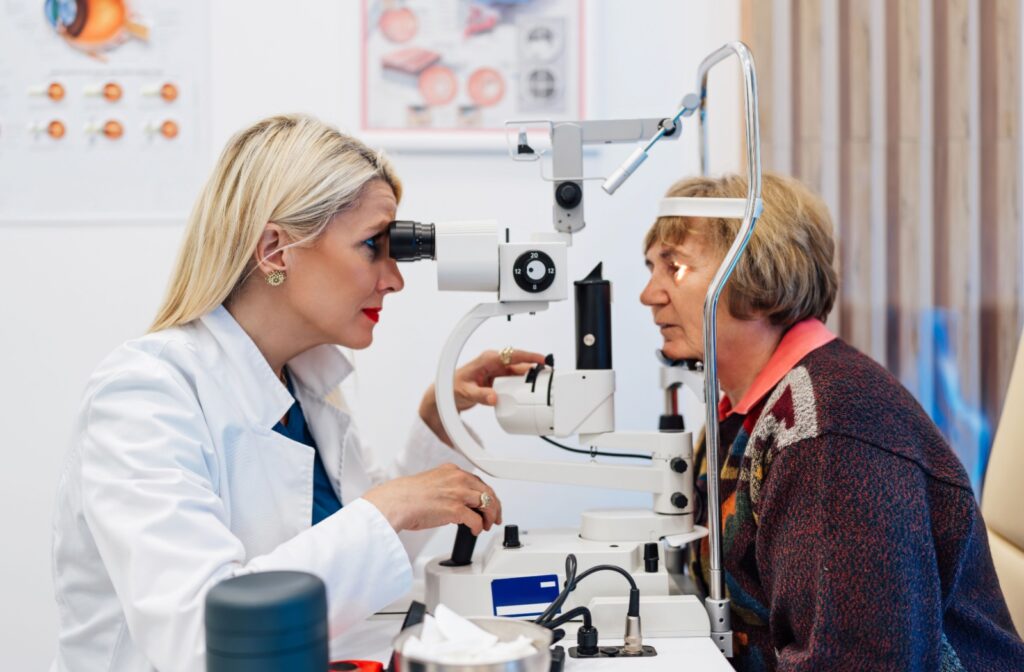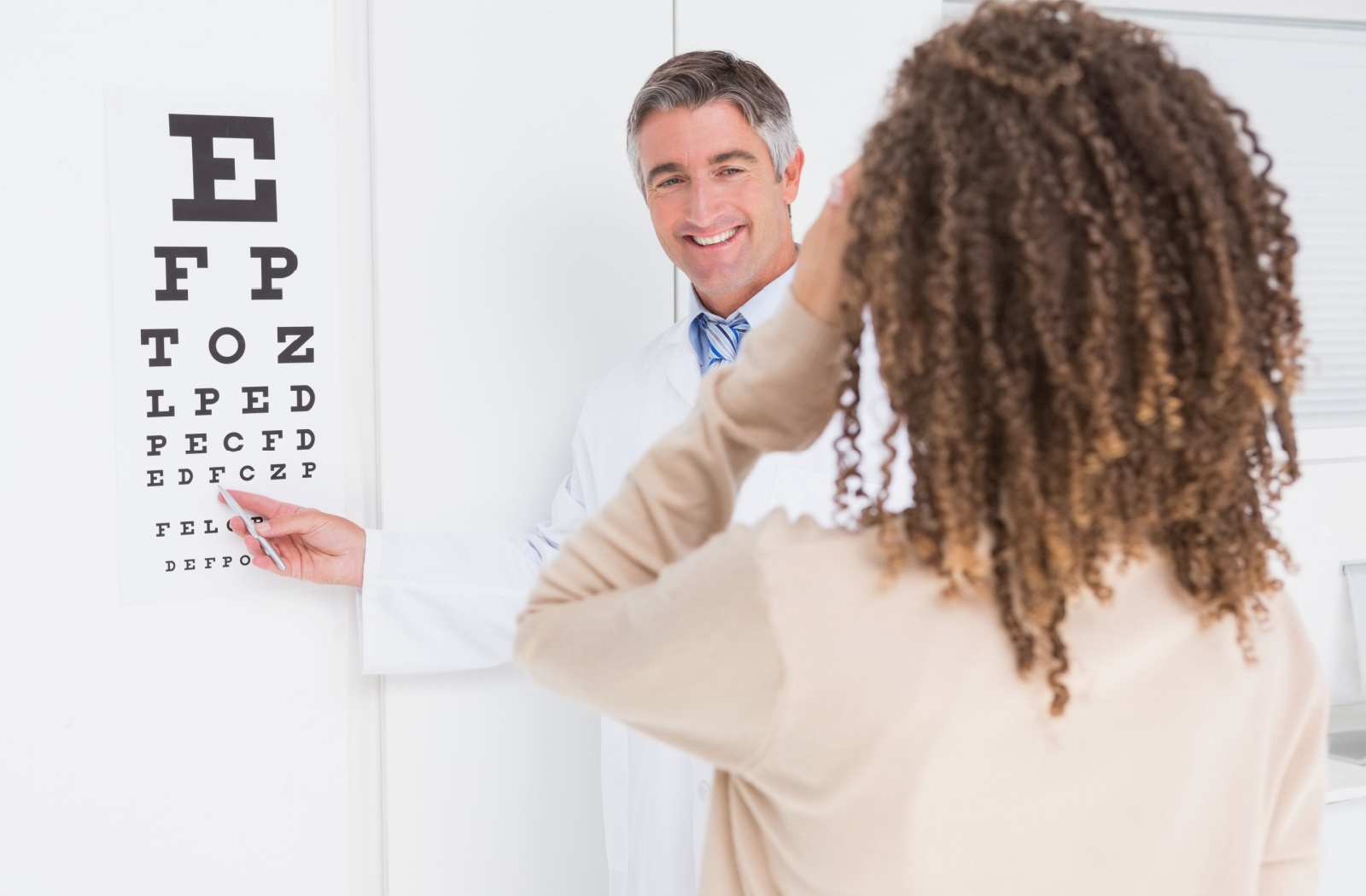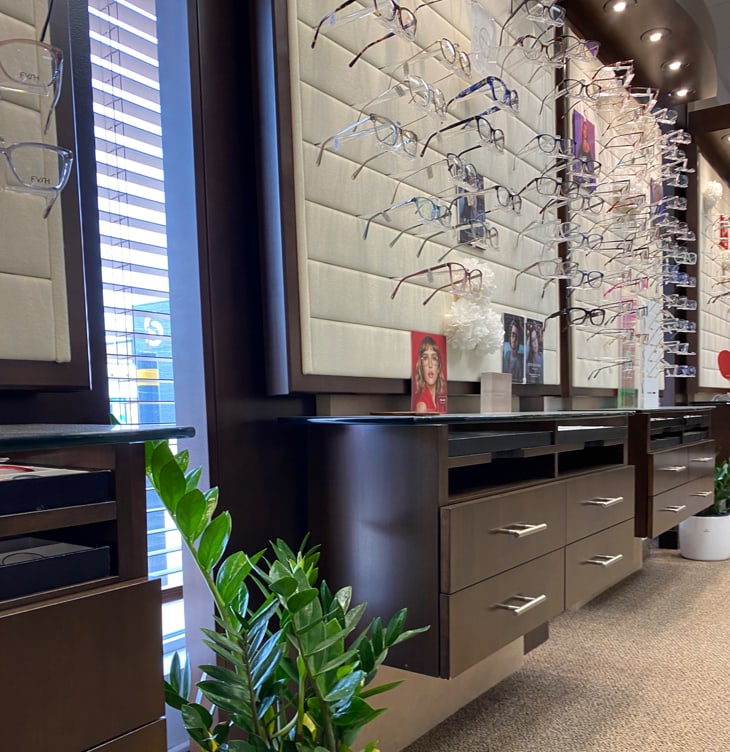Your eyes work hard every day, from the moment you wake up and check your phone to when you finally close them at night. Yet many of us treat eye care like an afterthought, only booking appointments when something feels wrong. In reality, you should get an eye exam every 1 to 2 years, depending on your age and other health factors.
Regular eye exams are about more than just updating your prescription. They’re your first line of defence against severe eye conditions and can even reveal signs of other health issues before symptoms appear elsewhere.
Why Regular Eye Exams Matter
Think of eye exams as preventive maintenance for your vision. Just like you wouldn’t skip oil changes for your car, your eyes need regular professional attention to keep running smoothly.
Early Detection of Eye Diseases
Many serious eye conditions develop silently. For example, glaucoma is often called the “silent thief of sight” because it typically shows no symptoms until significant vision loss has already occurred. During a comprehensive eye exam, your optometrist can detect increased eye pressure and other early warning signs before you notice any changes.
Conditions like age-related macular degeneration (AMD), diabetic retinopathy, and cataracts also benefit from early detection.
Prevention of Vision Loss
Catching eye problems early often means more effective treatment. Some conditions can be prevented entirely with timely intervention, while others can be significantly slowed or managed to maintain quality of life.
Your optometrist can also identify risk factors that might lead to future problems and recommend lifestyle adjustments or preventive measures to protect your sight.
Overall Health Check
Your eyes are windows to your overall health. During an eye exam, your eye doctor can spot signs of diabetes, high blood pressure, autoimmune disorders, and even certain cancers. The blood vessels in your retina also provide a unique view of your body’s circulatory system that can reveal health issues before they’re detected elsewhere.
Canadian Guidelines for Eye Exam Frequency
The Canadian Association of Optometrists provides clear recommendations for how often different age groups should have their eyes examined.
Infants & Children
Babies should have their first eye exam between 6 and 9 months of age. This might seem early, but it allows optometrists to detect serious conditions like lazy eye, crossed eyes, or congenital cataracts that require immediate attention for proper visual development.
After the initial exam, children should be seen again between the ages of 2 and 5, then annually once they start school. Early detection of vision problems is crucial for academic success and social development.
School-Age Children
Children between 6 and 19 years old should have annual eye exams. Growing bodies mean changing vision, and undiagnosed vision problems can significantly impact learning and sports performance.
Adults
Adults aged 20 to 64 with no known eye problems should have comprehensive eye exams every 2 years. However, if you wear glasses or contacts or have other health problems, your eye doctor may recommend annual exams to monitor prescription changes and overall eye health.

Seniors
Adults 65 and older should have annual eye exams. Age increases the risk for virtually all serious eye conditions, including cataracts, macular degeneration, glaucoma, and diabetic retinopathy.
Factors Influencing Eye Exam Frequency
While age-based guidelines provide a starting point, several factors might suggest that you need more frequent exams.
Family History
If any of your close relatives have glaucoma, macular degeneration, or other hereditary eye conditions, you may need more frequent monitoring. Genetic predisposition significantly increases your risk for developing these conditions yourself.
Existing Eye Conditions
If you already have an eye condition, your optometrist will recommend a specific follow-up schedule based on your diagnosis and treatment plan. Some conditions require monitoring every few months, while others might need annual checkups.
Lifestyle & Occupation
Certain jobs and activities put extra strain on your eyes. If you spend long hours at a computer, work in environments with chemicals or flying debris, or participate in sports with eye injury risks, more frequent exams might be beneficial.
People with diabetes, high blood pressure, or other systemic health conditions also need more frequent eye monitoring, as these conditions can affect eye health.
What to Expect During an Eye Exam
Understanding what happens during a comprehensive eye exam can help ease any anxiety and ensure you get the most from your visit.
Comprehensive Exam Components
A thorough eye exam includes several tests. Your optometrist checks your visual acuity, tests how well your eyes work together, examines your peripheral vision, and often measures eye pressure.
Your eye doctor may use drops to dilate your pupils, allowing a clear view of your retina and optic nerve.
New Technologies & Diagnostic Tools
Modern eye care includes imaging technologies that can detect problems earlier and track changes more precisely than ever before. Digital retinal photography, OCT scans, and computerized visual field testing provide detailed information about your eye health.
Making Eye Exams Accessible
Cost shouldn’t be a barrier to proper eye care. Understanding your coverage options helps ensure you can maintain regular eye health.
Insurance Coverage & Direct Billing
Many extended health plans cover eye exams and eyewear. At Old South Optometry, we offer direct billing for most insurance plans, making it easy to use your benefits without upfront costs.
We also work with patients to find solutions that fit their budgets, because everyone deserves access to quality eye care.
Taking the Next Step for Your Eye Health
Regular eye exams are an investment in your future vision and overall health. Whether you’re due for a routine checkup or concerned about changes in your vision, don’t wait to schedule your appointment. Give your eyes the professional care they need to help ensure they’ll continue serving you well for years to come. If it’s been more than a year since your last exam, or if you’re experiencing any vision changes, contact Old South Optometry today to book your comprehensive eye examination.











